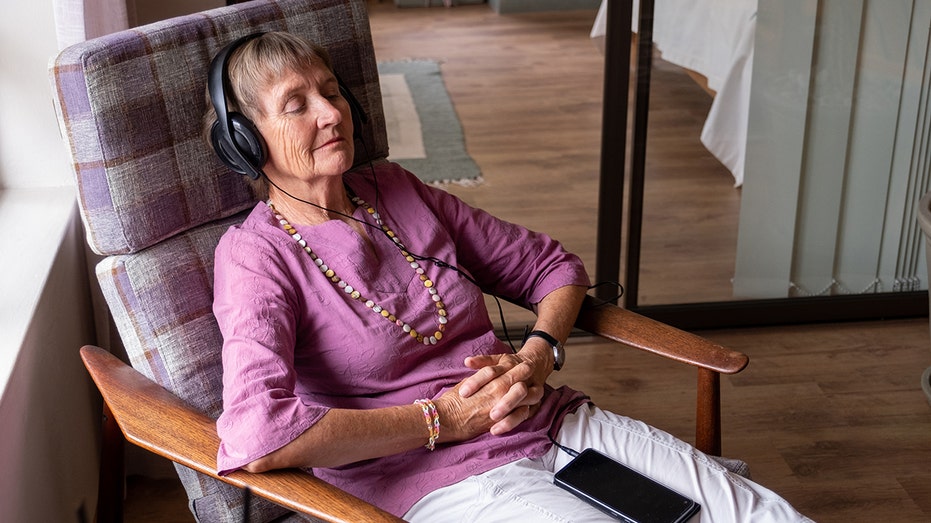Top Stories
Music Cuts Dementia Risk by Nearly 40% for Seniors, Study Finds

UPDATE: A groundbreaking study from Monash University reveals that listening to music can significantly reduce the risk of dementia for adults aged 70 and older. The research indicates that seniors who regularly engage with music are nearly 40% less likely to develop dementia, a serious cognitive disorder affecting millions globally.
Conducted over several years, the study tracked 10,800 adults from Australia to assess their music habits. The results are striking: those who consistently listened to music showed a 39% lower risk of dementia, while individuals who played musical instruments had a 35% reduced risk. Notably, combining both activities provided even greater protection against cognitive decline.
Professor Joanne Ryan, a lead researcher, stated, “With no cure currently available for dementia, the importance of identifying strategies to help prevent or delay onset of the disease is critical.” She emphasized that factors influencing brain aging extend beyond genetics and age, incorporating lifestyle choices.
The study, published in the International Journal of Geriatric Psychiatry, also highlights that engaging with music can lower the risk of mild cognitive impairment by 22%, improving overall cognition and episodic memory, which is crucial for recalling everyday events.
Dementia currently affects approximately 57 million people worldwide, according to the World Health Organization. These findings suggest that incorporating music into daily routines may serve as a simple, yet effective, strategy for protecting cognitive health in older adults, although causation has not been definitively established.
The study’s authors note that music activities may be especially beneficial for older adults with higher education levels, specifically those with at least 16 years of schooling. However, the benefits appear mixed for those with moderate education.
Dr. Morten Scheibye-Knudsen, an associate professor of aging at the University of Copenhagen, cautioned that while mental stimulation is encouraged, the evidence remains inconclusive. He remarked, “In general, it is advised to train your brain, but the data is actually not that clear.” Still, he acknowledged the social interactions that come with playing an instrument as a crucial benefit for aging individuals.
As the world faces an increasing prevalence of dementia, the implications of this study are urgent. Encouraging seniors to engage with music could not only enhance their quality of life but also present a proactive approach toward safeguarding cognitive function as they age.
Stay tuned for more updates on this developing story as researchers continue to explore the vital link between music and brain health.
-

 Science2 weeks ago
Science2 weeks agoResearchers Challenge 200-Year-Old Physics Principle with Atomic Engines
-

 Entertainment1 week ago
Entertainment1 week agoSyracuse Stage Delivers Lively Adaptation of ‘The 39 Steps’
-

 World2 weeks ago
World2 weeks agoGlobal Military Spending: Air Forces Ranked by Budget and Capability
-

 Politics2 weeks ago
Politics2 weeks agoNHP Foundation Secures Land for 158 Affordable Apartments in Denver
-

 Politics6 days ago
Politics6 days agoNFL Confirms Star-Studded Halftime Show for Super Bowl LVIII
-

 World1 week ago
World1 week agoBoeing’s Aircraft Production: Assessing Numbers and Challenges
-

 Lifestyle7 days ago
Lifestyle7 days agoTrump’s Push to Censor National Parks Faces Growing Backlash
-

 Lifestyle1 week ago
Lifestyle1 week agoRed Bluff High School’s Elli Nolan Named Rotary Student of the Month
-

 Health2 weeks ago
Health2 weeks agoNeuroscientist Advocates for Flag Football Until Age 14
-

 Top Stories1 week ago
Top Stories1 week agoUrgent Search for Suspect Who Exposed Himself to Teen Girl
-

 Science1 week ago
Science1 week agoAI Misidentifies Doritos Bag as Gun, Triggers Police Response
-

 Health2 weeks ago
Health2 weeks agoFDA Launches Fast-Track Review for Nine Innovative Therapies









